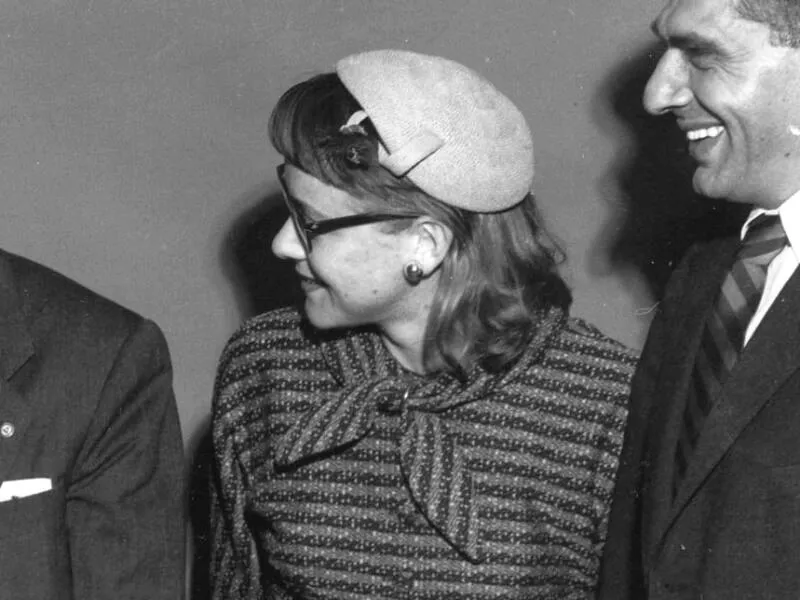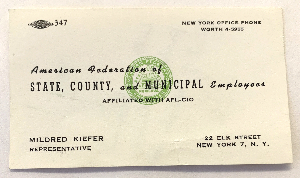AFSCME mourns the loss of a beloved member of our union family, Mildred Wurf

AFSCME mourns the loss of Mildred Wurf, a beloved member of our union family, a pioneering District Council 37 educator and the widow of former AFSCME president, Jerry Wurf. Mildred Wurf died on Dec. 29 at the age of 95.
Born Mildred Kiefer on Sept. 1, 1926, in San Francisco, Wurf earned her B.A. from the University of California in 1947. After pursuing graduate studies at Columbia University, she joined the staff of DC 37 in New York City. Wurf played many roles there, serving as office manager, researcher, writer, organizer and its first education director.
In 1960, she married Jerry Wurf, DC 37’s executive director, who would go on to be elected president of AFSCME in 1964. During his 17-year tenure as president of AFSCME International, our union’s membership grew from about 235,000 to more than a million.
In remarks at AFSCME’s 2018 International Convention in Boston, Mildred Wurf reflected on her early days with our union.
“I went to work with AFSCME District Council 37 in the early 1950s. I was the third employee,” recalled Wurf. As AFSCME worked to solidify its foothold in New York, Wurf recalled those days as “exciting and tumultuous times.”
Wurf added that during her six years at DC 37, she developed the first educational programs and pioneered a systematic way to train shop stewards for whom grievance procedures were still novelties.
“This was all very new in public employment,” said Wurf of innovations at DC 37 during that time. “Jerry was organizing or creating the first collective bargaining program and dues checkoff in the public sector. That was a major development. I think many councils and locals were able to take advantage of that pattern and gain the same rights.”
Among her most powerful AFSCME memories was receiving the news in 1968 about a nascent strike by sanitation workers in Memphis, Tennessee.
“I remember so vividly the call at 7:30 in the morning when T.O. Jones [president of AFSCME Local 1733, which represented Memphis sanitation workers] called and said, ‘Jerry, we've gone out on strike and I know we shouldn't have because it's February, but two men have been killed and we are on strike in Memphis.’”
[caption caption="Photo credit: AFSCME Archives, Walter P. Reuther Library" align="left"] [/caption]
[/caption]The strike would become a signature moment in labor history, one of the boldest ever examples of collective action. Thirteen hundred sanitation workers, virtually all of them African American, walked off the job for dignity and respect, drawing support from Dr. Martin Luther King Jr., who was assassinated in Memphis during the strike. The standoff ended in a victory for the workers, whose union was eventually recognized by the city and who saw gains in wages, benefits and more.
In 1982, the year following her husband’s death, Mildred Wurf was the guiding force in establishing and advising the Jerry Wurf Memorial Fund. The fund is dedicated to improving the quality of lives of working people; to open debate on public policy issues; and to informed political action. Many AFSCME leaders and members around the nation have benefitted from Wurf Fund scholarships and research. Mildred Wurf remained involved in other advocacy organizations throughout her life and is survived by a son, Nicholas, and a daughter, Abigail.
Rest in power, Sister Wurf.
